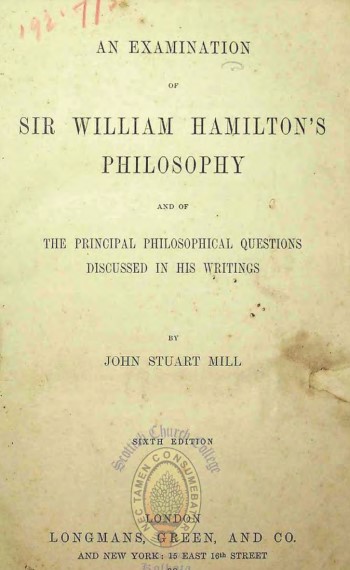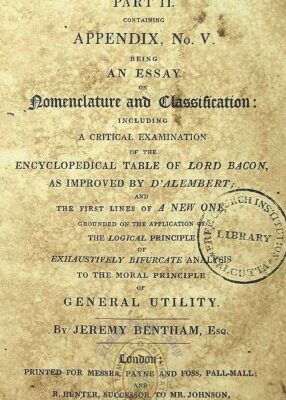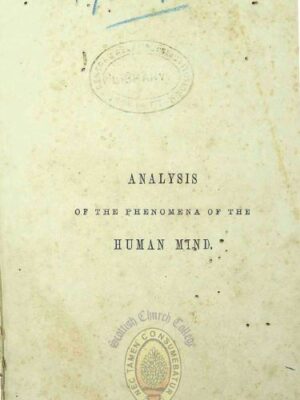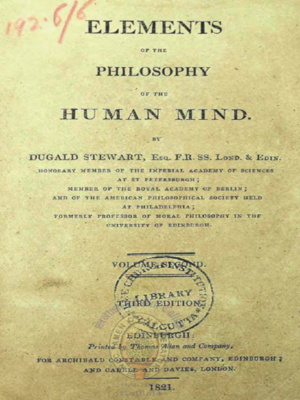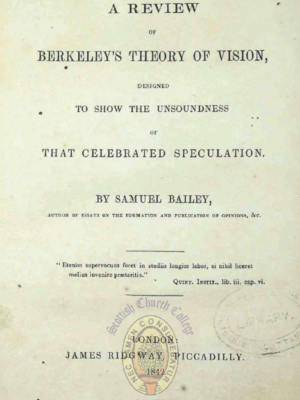Description
An Examination of Sir William Hamilton’s Philosophy by John Stuart Mill is a critical and comprehensive review of the philosophical ideas and arguments put forth by Sir William Hamilton, a prominent 19th-century Scottish philosopher. Mill, one of the most influential British philosophers, uses this work to engage deeply with Hamilton’s theories, particularly focusing on epistemology, metaphysics, and the philosophy of perception.
In this text, Mill scrutinizes Hamilton’s ideas on topics such as the nature of knowledge, the limits of human cognition, and the principle of relativity in perception. One of the key debates Mill addresses is Hamilton’s position on the philosophy of the “conditioned,” which concerns the limitations of what humans can know about the absolute and the infinite. Mill contrasts Hamilton’s positions with his own empiricist views, advocating for a philosophy grounded in experience and inductive reasoning.
Mill also delves into discussions about free will, the nature of causality, and the philosophy of mind, making this work a broader exploration of significant philosophical questions of the time. His critique of Hamilton is rigorous and detailed, aiming not only to challenge Hamilton’s conclusions but also to clarify Mill’s own philosophical outlook, particularly his views on associationism and the limits of knowledge.
This work is essential for students of philosophy, especially those interested in British empiricism, 19th-century philosophy, and the historical debates surrounding knowledge, perception, and metaphysics. Mill’s detailed examination offers insights into the ongoing intellectual struggles of his time, reflecting the broader philosophical currents of empiricism versus idealism.

